5 Vacation Rental Franchise Opportunities Worth Considering in 2026
Travel demand is surging again. In summer 2025, nights booked climbed four percent year over year, RevPAR hit $169, and U.S. occupancy averaged 55 percent, according to AirDNA. Those gains magnify pain points for solo hosts: dynamic pricing, tighter permits, and marketing budgets they can’t match.
A vacation-rental franchise bridges the gap. You run a local property-management business, while the brand—think SkyRun Vacation Rentals—supplies technology, marketing reach, and compliance support. This guide compares five standout franchises positioned for 2026 so you can choose the partner that fits your goals.
Why 2026 is prime time for a vacation-rental franchise
Demand keeps climbing. AirDNA’s U.S. snapshot shows that summer 2025 nights booked rose four percent year over year, average RevPAR reached $169, and national occupancy held at 55 percent. (nyc.gov)
Regulations continue to squeeze solo hosts. According to New York City’s Office of Special Enforcement, the city began full enforcement of Local Law 18 in September 2023. By mid-2025 the city had approved only about 3,000 host registrations and listed more than 14,000 buildings where short-term rentals are banned—a template now under review in San Diego, Atlanta, and other metros.
Consolidation has raised the competitive bar. Casago’s May 1, 2025 acquisition of Vacasa created a forty-thousand-home portfolio, giving the combined company marketing muscle and enterprise-grade technology that independents cannot match, according to a Vacasa press release.
Tougher rules and supersized rivals tilt the field against independents. A franchise keeps you local yet plugs you into compliant playbooks and 24/7 guest support; vacation-rental franchise platform SkyRun does exactly that, so owners can stay legal while someone else handles the midnight call. With demand strong and headwinds mounting, 2026 is the ideal window to secure territory before the next regulatory or consolidation wave hits.
How we selected these franchise opportunities
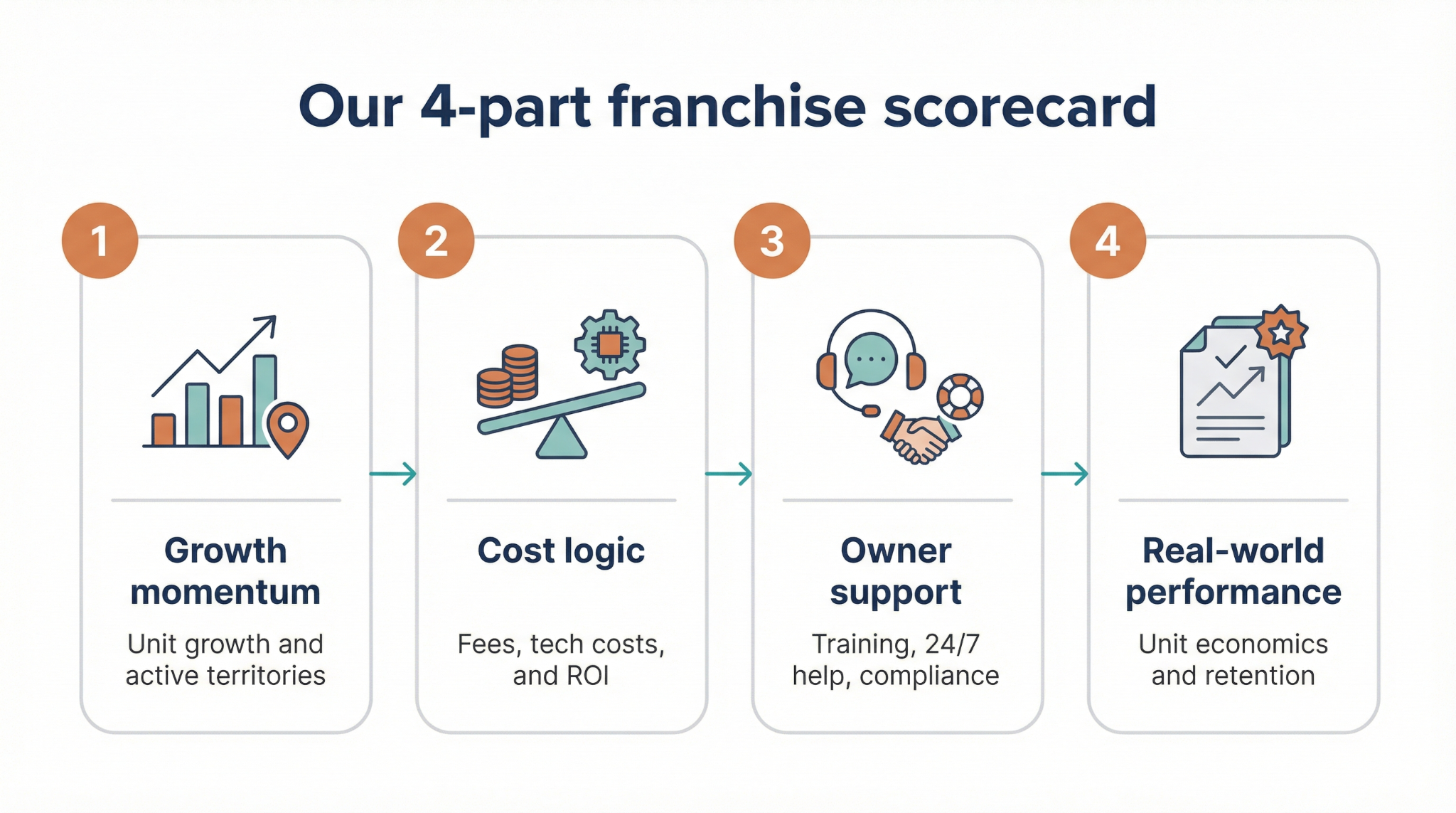
We applied a four-step scorecard to 15 U.S. vacation-rental franchisors and advanced the five that cleared every bar.
- Growth momentum. Each brand had 10-plus active territories and at least 15 percent unit growth between January 2024 and June 2025, based on Franchise Disclosure Documents (FDDs) and Entrepreneur’s 2025 Franchise 500 data.
- Cost logic. We compared initial investment, royalty rate, and any flat tech or marketing fees. Brands charging more than eight percent in combined royalty and fees without demonstrably higher revenue were removed.
- Owner support. Required: onboarding training, 24/7 guest-services or reservations coverage, and documented compliance help. Programs lacking two of those three elements were cut.
- Real-world performance. We matched Item 19 unit economics and franchisee retention rates in the FDD against third-party coverage such as AZ Big Media interviews and Entrepreneur franchisee surveys to confirm that spreadsheets align with operator experience.
The five finalists excel on different strengths: low royalty, rapid scale, lifestyle flexibility, or diversification. Use the upcoming comparison table and deep-dive profiles as a launch pad, then review each brand’s FDD and talk with current owners before you sign.
SkyRun Vacation Rentals: local heart, big-brand backbone
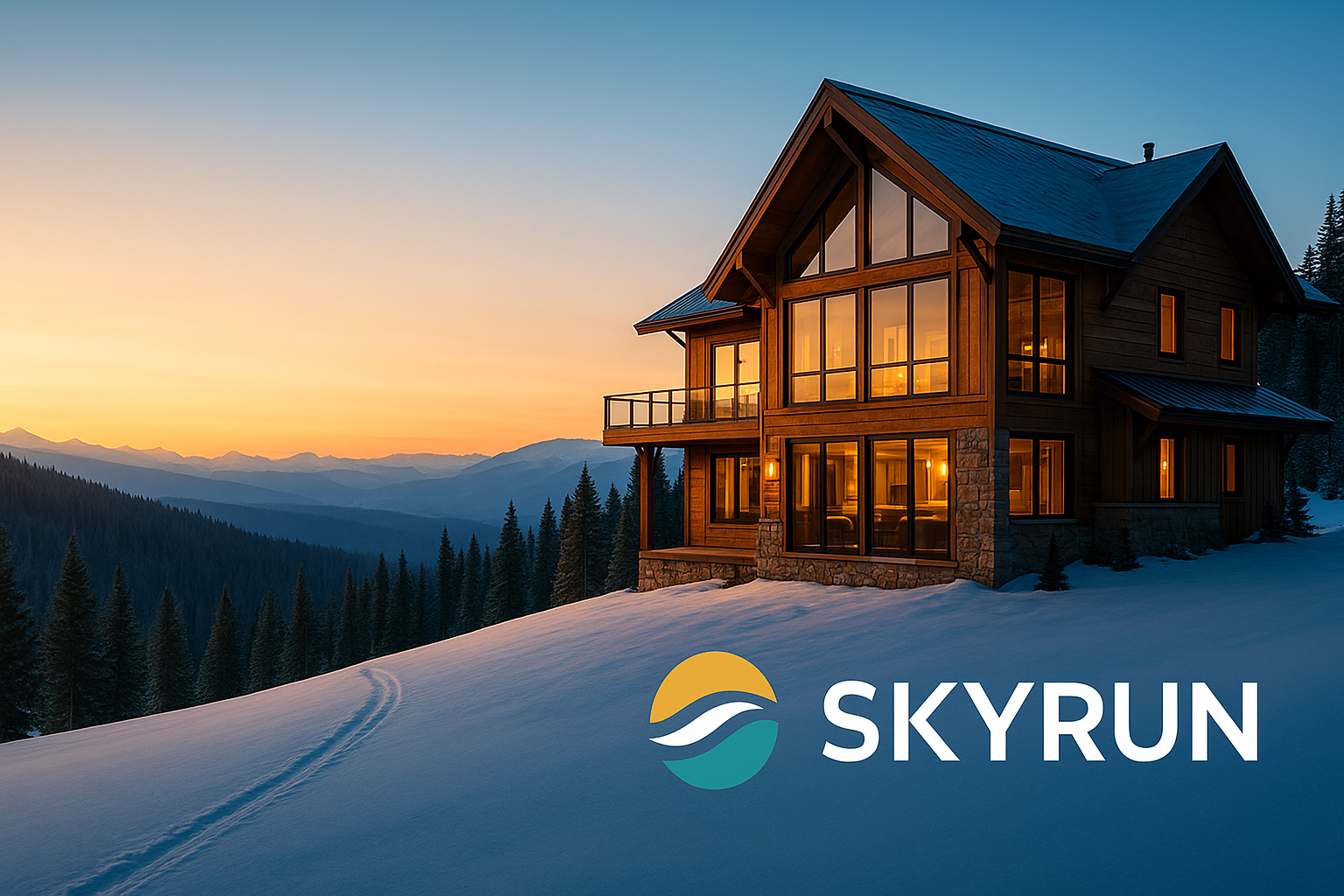
Founded in Keystone, Colorado, in 2004 and franchising since 2022, SkyRun spans 48 U.S. territories as of June 2025.
Investment snapshot. The 2024 FDD lists a start-up range of $105,080–$153,980, including a $55,000–$75,000 territory fee. Ongoing costs are five percent royalty plus one percent brand fund, with no extra tech surcharge. Because you can launch from a home office and outsource cleaning, fixed overhead stays low until you scale.
Built-in tech. One dashboard sends listings to Airbnb, Vrbo, Marriott Homes & Villas, and more than 50 niche OTAs. Dynamic pricing, trust accounting, and an owner portal come bundled. A group-buy program lowers the price of linens, insurance, and smart locks—savings independents rarely capture.
Training & support. New owners attend a week-long “SkyRun Start,” then meet monthly with a dedicated coach. A peak-season hotline connects you with corporate staff, not chatbots, when a midnight guest issue crops up. Local creativity is encouraged, so adding, say, guided fly-fishing in your mountain market is fair game as long as service standards hold.
Ideal fit. Hands-on operators in destination towns who aim to manage 40-plus homes without giving up local decision-making. If you want enterprise-grade tools and a light royalty yet still greet owners by first name, SkyRun offers that balance.
Grand Welcome: scaling fast with big revenue potential
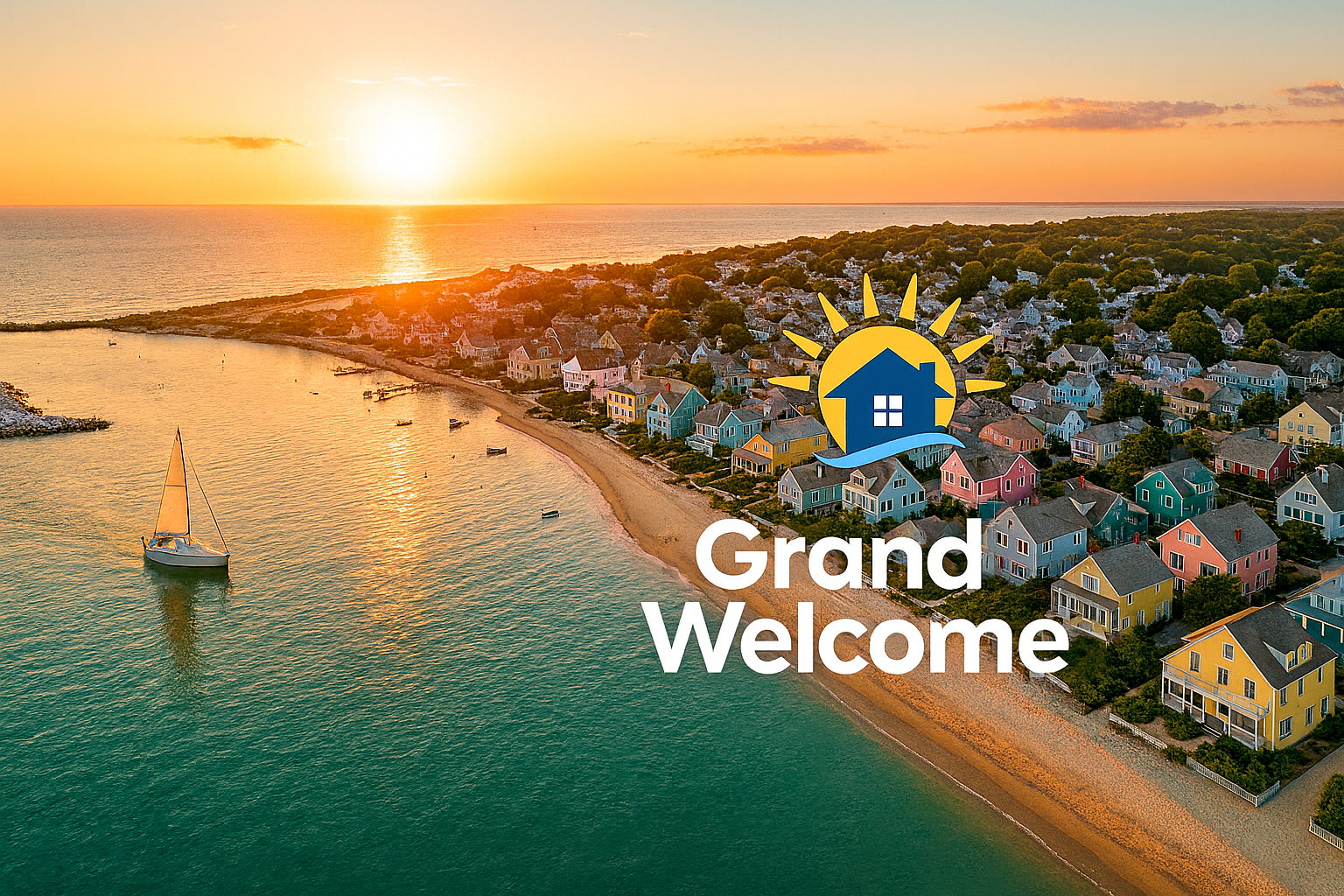
Grand Welcome began franchising in 2020 and, by March 2025, expanded to 73 U.S. territories, up 192 percent in three years.
Investment & fees. The 2024 FDD shows a start-up range of $68,000–$170,000, driven by a tiered franchise fee that starts at $49,000. Ongoing costs are eight percent royalty, one percent national marketing fund, plus $1,500–$2,500 in required local ads each month.
Unit economics. Corporate territories averaged $4.18 million in gross bookings in 2023, or about $68,000 in annual revenue per property. Franchisees who manage 60-plus homes typically reach mid-six-figure net income after expenses.
Support platform.
- Twenty-four-seven reservations center resolves guest issues, so you can focus on signing new owners.
- Corporate marketing funnels homeowner leads into each territory, shortening your sales cycle.
- Weekly performance calls keep KPIs visible and coach you toward growth milestones.
Culture & fit. Grand Welcome expects owners to hire staff and scale quickly. If you thrive in a high-velocity environment and want corporate horsepower—including lead flow, call-center coverage, and aggressive marketing—this brand offers a proven path to rapid territory dominance. Prefer a slower build? Another franchise may suit you better.
Casago: low royalty, tech-driven and owner-first
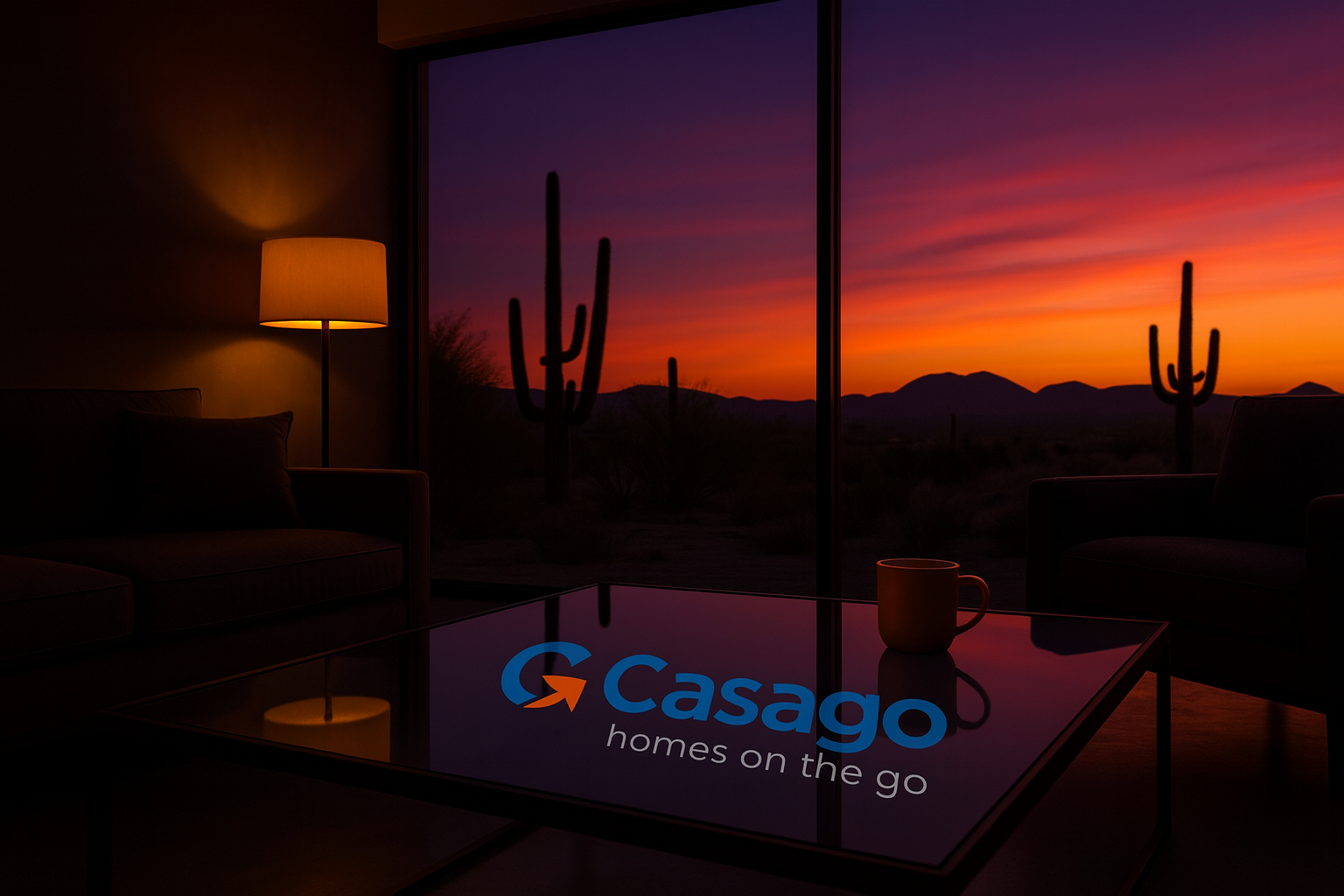
Casago managed vacation homes for two decades before launching its U.S. franchise in 2021. Growth accelerated in May 2025, when Casago acquired Vacasa’s consumer brand and its portfolio of about 40,000 properties, boosting marketing reach and funding system upgrades.
Investment & fees. The 2024 FDD lists a start-up range of $83,000–$329,000, reflecting large territories and optional brick-and-mortar offices. Ongoing costs stay light: a 3.5 percent royalty plus a flat $99 per property, per month for the entire tech suite—roughly half what percentage-based rivals charge once you manage 50 or more homes.
Enterprise-grade software. A single dashboard sends listings to Airbnb, Vrbo, and Marriott Homes & Villas, runs dynamic pricing, automates trust accounting, and handles 24/7 guest messaging, so peak-season glitches do not derail reservations.
Collaborative culture. CEO Steve Schwab’s ORANGE credo puts owners first. Weekly mastermind calls and annual summits turn the network into a shared R&D lab for regulatory tactics and revenue ideas rather than a siloed franchise roster.
Who thrives here. Capitalized operators targeting 100-home portfolios who value margin efficiency and peer brainstorming. With low royalties, a flat tech fee, and fresh Vacasa brand equity, Casago offers significant upside for growth-minded owners.
iTrip Vacations: a lifestyle franchise you can run from anywhere
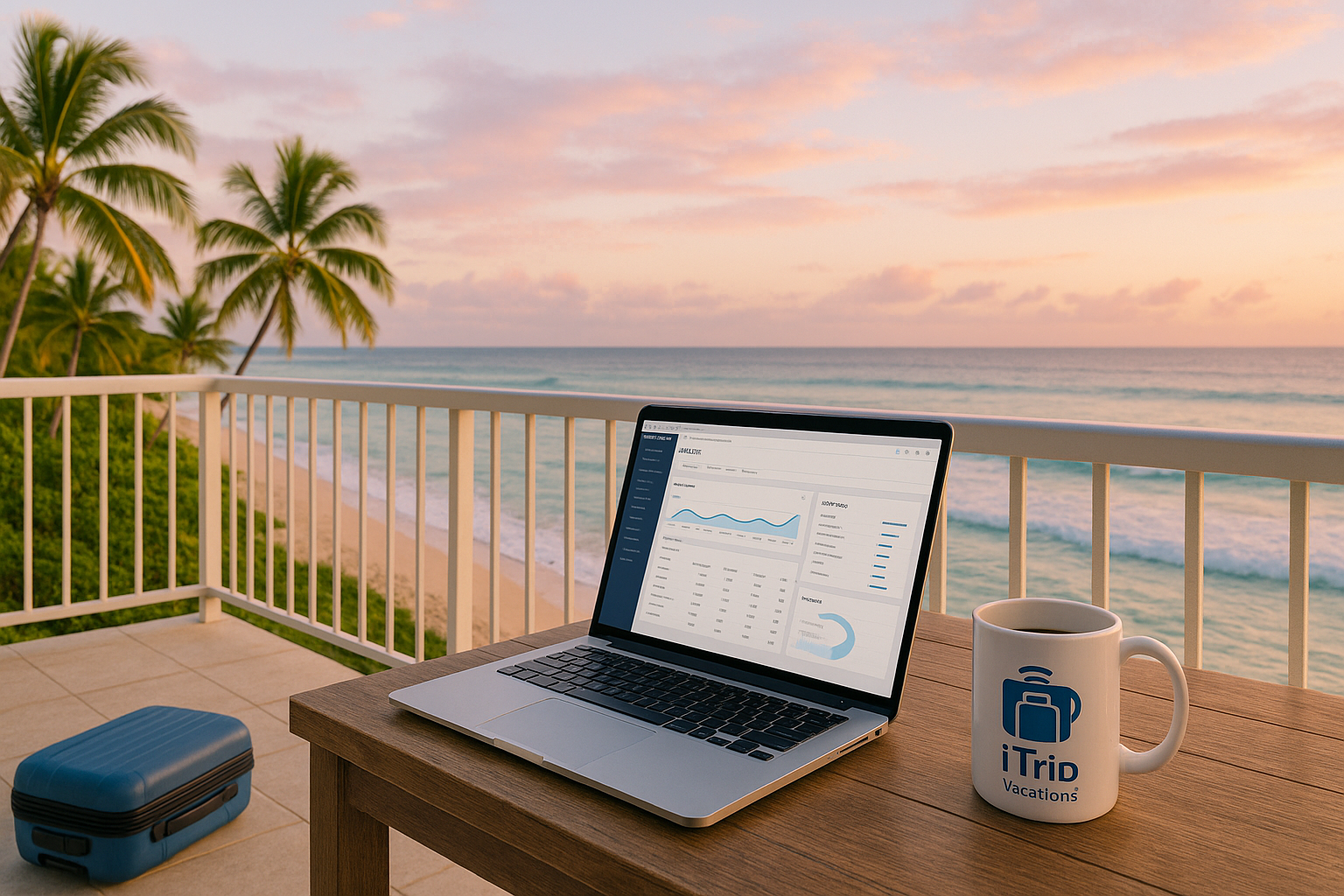
Founded in 2008 and franchising since 2015, iTrip spans 117 U.S. territories as of 2025, giving it national name recognition without feeling oversized.
Investment & fees. The 2024 FDD lists a start-up range of $112,000–$153,000. Royalties follow a sliding scale that starts at four percent and caps slightly above six percent as revenue grows, easing cash flow during ramp-up. A one-percent national marketing fund covers software and PPC/SEO campaigns, so you avoid a separate tech bill later on.
Why owners like it.
- Corporate pushes listings to more than 80 booking sites and manages paid search, freeing you to sign new homeowners.
- A 24/7 call center handles guest questions, so you are not glued to your phone at midnight.
- Lean overhead: most franchisees work from a home office and coordinate cleaners remotely.
Training & performance. New owners spend a week in Nashville, then pair with a veteran mentor for monthly KPI reviews. Results vary with effort; top operators praise high margins, while under-engaged owners lag—clear proof that the model rewards hustle more than hand-holding.
Ideal fit. Choose iTrip if you value geographic freedom and relationship-building over running a large onsite staff. With modest fees, centralized marketing muscle, and laptop-friendly operations, it turns the digital-nomad dream into a credible business plan.
Property Management Inc. (PMI): diversify with four revenue streams

PMI lets one franchise agreement cover four pillars: vacation rentals, long-term residential, HOA management, and light commercial, so revenue is not hostage to hurricane season or new short-term-rental rules.
Investment & fees. The 2024 FDD lists a start-up range of $77,000–$154,000. Ongoing costs are six percent royalty plus a two-percent tech and marketing fee that funds proprietary software and national campaigns. You can add another pillar later for a modest incremental fee instead of buying a second franchise.
Scale & support. With more than 400 franchises nationwide, PMI negotiates discounts on smart locks, insurance, and cleaning supplies—savings you can redirect into growth. Each pillar has a dedicated coach—evictions for residential, reserve studies for HOA, and so on—shortening the learning curve.
Training runway. New owners attend a week at headquarters, then tap quarterly regional meet-ups and an annual convention. Franchisees praise the knowledge-share culture: someone in the system has already solved the problem you’re facing.
Ideal fit. PMI suits spreadsheet-minded entrepreneurs who want to stack multiple income lines and hedge against seasonality. Just note: running four businesses under one roof demands operational discipline and comfort with wearing several hats.
Side-by-side comparison at a glance
Need the numbers in one place? Use this cheat sheet, then dig into each brand’s latest FDD.
| Franchise | Initial investment | Franchise fee | Ongoing fees | U.S. territories (2025) | Stand-out differentiator |
|---|---|---|---|---|---|
| SkyRun | $105,000–$154,000 | $55,000–$75,000 | five percent royalty + one percent marketing | 48 | Resort-market focus; home-office friendly |
| Grand Welcome | $68,000–$170,000 | from $49,000 (tiered) | eight percent royalty + one percent marketing + required local ads | 73 | Lead flow and 24/7 reservations center |
| Casago | $83,000–$329,000 | approx. $60,000 | 3.5 percent royalty + $99 per-property tech fee | 53 | Lowest royalty; flat tech fee at scale |
| iTrip | $112,000–$153,000 | approx. $55,000 | four–six percent royalty + up to one percent marketing | 117 | Run-from-anywhere lifestyle model |
| PMI | $77,000–$154,000 | $15,000–$62,000 | six percent royalty + two percent tech and marketing | 417 | Four-pillar diversification |
Figures come from each brand’s 2025 FDD or Entrepreneur directory listing and were cross-checked against AZ Big Media’s November 2025 franchise roundup.
Keep two caveats in mind. First, ranges shift with territory size and whether you open a physical office. Second, royalties usually exclude pass-through costs such as credit-card processing. Always verify the latest disclosure before budgeting.
How to choose the franchise that fits your goals
- Check the math. Up-front and ongoing fees reveal whether a brand fits your budget, but they do not show the day-to-day experience.
- Match the culture.
- Low-royalty builders: SkyRun and Casago reward owners who plan to scale.
- Marketing-first brands: Grand Welcome and iTrip take a bigger cut but cover after-hours calls and national advertising.
- Diversifiers: PMI trades narrow focus for stability with four income lines.
- Align with your working style.
- Want maximum autonomy? SkyRun’s flexible playbook lets you call every shot.
- Crave rapid growth with corporate leads? Grand Welcome is built for speed.
- Love tech efficiency? Casago’s flat per-property platform keeps margins fat.
- Need geographic freedom? iTrip’s laptop-friendly model fits digital nomads.
- Prefer a portfolio hedge? PMI’s multi-pillar design smooths seasonality.
- Stress-test support. Who answers at 2 a.m. when a guest is locked out? Grand Welcome and iTrip offer 24/7 call centers; SkyRun gives direct-line coaching during crunch periods. Need help decoding new permits? Casago’s mastermind calls and PMI’s pillar coaches keep you off Google.
- Validate the promises. Pull each FDD, interview at least three current franchisees, and ask about year-one cash flow, lead flow, and corporate responsiveness. The hours you invest now cost far less than the five- or six-figure check you will write on signing day.
Conclusion
Travel demand keeps climbing. U.S. short-term rentals posted record RevPAR in 2025 and show no sign of cooling. Choose a brand that fits your budget, lifestyle, and growth appetite, and you will ride the wave instead of paddling alone.








